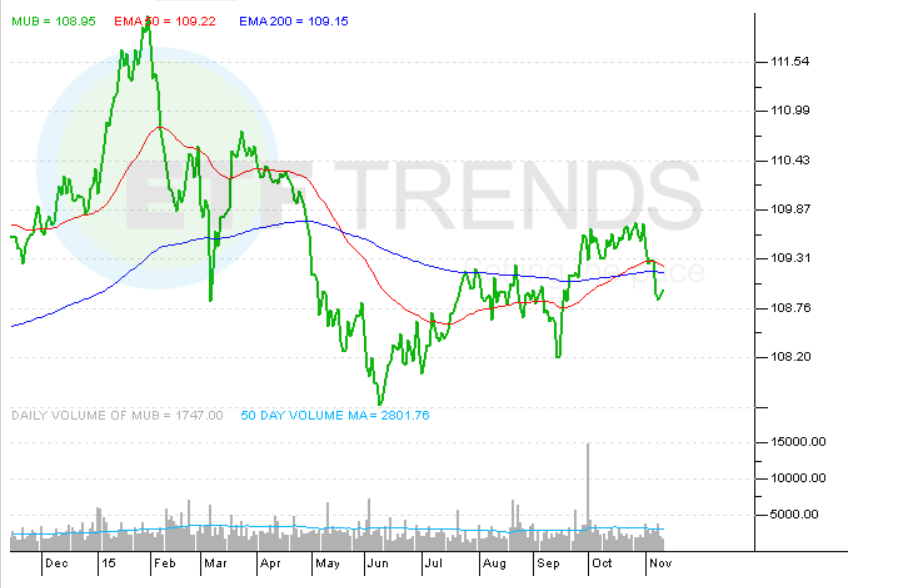Muni ETFs Could See a Flood of New Issuance
Though municipal bonds and the exchange traded funds that hold that debt are viewed as potentially vulnerable to potential changes in Federal Reserve interest rate policy, these funds have remained popular with conservative income investors.
Now, municipal bond investors could see a wave of new issuance as municipalities race to get bonds to market in advance of the Fed possibly raising rates following its December meeting.
Through September 30, actively managed municipal-debt funds had $573 billion in assets under management, compared to just $20 billion for index funds – the largest active-to-passive difference for eight distinct fund types tracked by Morningstar, reports Ari I. Weinberg for the Wall Street Journal. Additionally, of the passive muni funds available, 85% of assets were in ETFs.
Potentially hinting at the potential growth opportunity in the muni index fund space, Vanguard Group recently launched its municipal bond ETF, the Vanguard Tax-Exempt Bond Index Fund (VTEB) . VTEB tries to reflect the performance of the Standard & Poor’s National AMT-Free Municipal Bond Index, which tracks investment-grade U.S. municipal bonds with at least a BBB- Fitch Rating and an effective duration between five and eight years. The ETF has a cheap 0.12% expense ratio, a 5.7 year duration and a 1.82% 30-day SEC yield. [Vanguard Launches Its First Muni Bond ETF]
Investors in higher marginal tax brackets typically hold muni debt as high-income investors would benefit the most from the state, federal and local tax-exempt status of the interest income generated from municipal bonds.
For example, the iShares National AMT-Free Muni Bond ETF (MUB) , which has a 0.25% expense ratio and a 4.71 year duration, shows a 1.65% 30-day SEC yield or a 2.91% taxable equivalent SEC yield for those in the highest income bracket.
“October brought a 20% jump in the number of requests for new municipal bond security identifiers, according to the CUSIP Issuance Trends Report . It was the first increase in five months,” reports Amey Stone for Barron’s. “A total of 1,111 new municipal bond identifier requests were made in October. The most requests came from Texas, New York and California.”
Municipal bond funds are attractive fixed-income investments because they are exempt from federal income taxes. Consequently, the muni ETFs provide enticing tax-exempt yields.
iShares National AMT-Free Muni Bond ETF
The opinions and forecasts expressed herein are solely those of Tom Lydon, and may not actually come to pass. Information on this site should not be used or construed as an offer to sell, a solicitation of an offer to buy, or a recommendation for any product.

